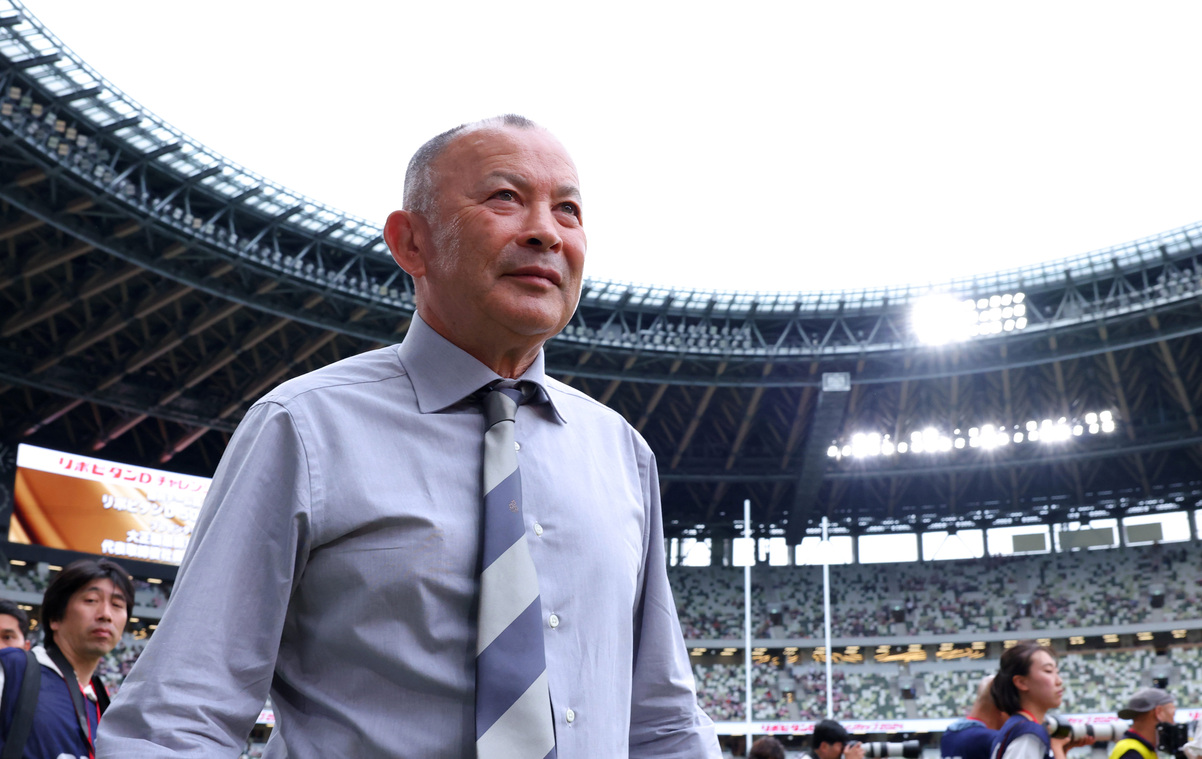
After nine seasons, head coach Eddie Jones returned to lead the Japan rugby men's national team.
On June 22, the Brave Blossoms lost 52-17 to England at Tokyo's National Stadium. For Jones, it was a match against many of his former players, including head coach Steve Borthwick, whom he coached until two years ago.
As the final score showed, Japan was unable to achieve a miracle victory like its stunning 34-32 upset of South Africa in the 2015 Rugby World Cup in Brighton, England.
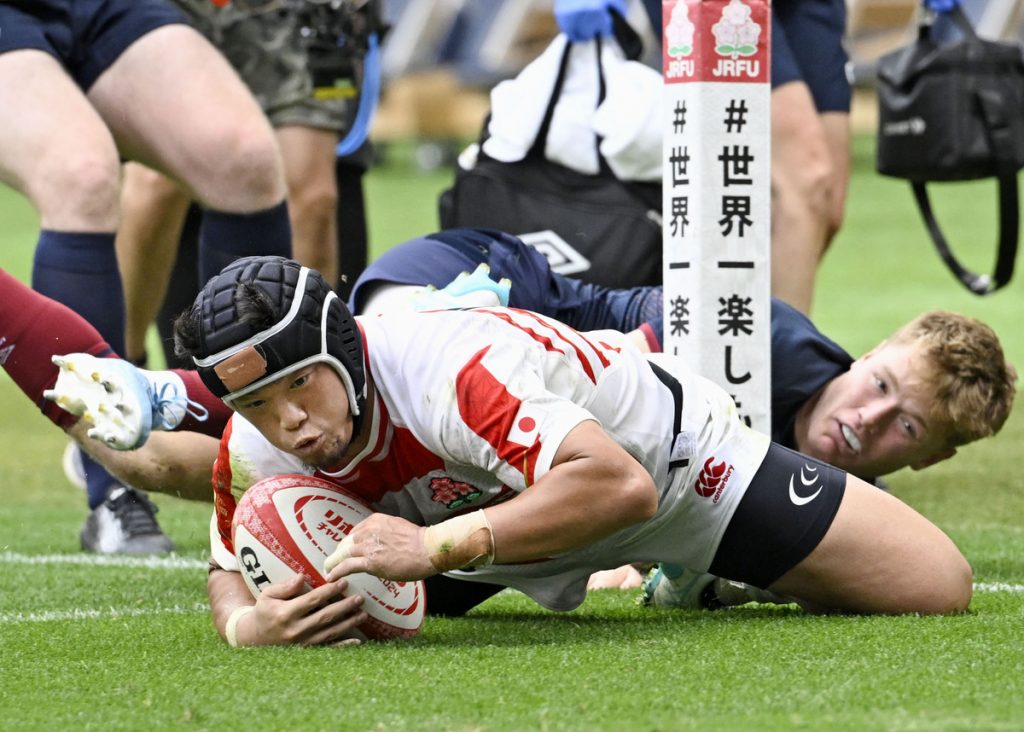
The Future of 'Super-Fast Rugby'
Jones' first challenge upon returning ended with a tough result. However, in his post-match conference, the head coach envisioned positive progress toward victory in three years.
"Of course, this result is disappointing and frustrating," he commented. "But considering the content [of the match], it provided important lessons about our current state and goals. Given that this team has only been together for 10 days, I think we are heading in a very good direction."
With 44,029 spectators watching, Japan took control at the kickoff. The Brave Blossoms played high-tempo rugby before England's defense settled in.
Jones' "super-fast rugby," unveiled at his introductory press conference in December 2023, was put into practice. However, after conceding England's first try in the 14th minute, Japan lost control of the game.
Nevertheless, the Brave Blossoms have taken a solid first step toward the 2027 Rugby World Cup.
A Look Ahead
Up next: A Japan XV squad, led by Jones, faces the Maori All Blacks on June 29 and July 6 at Tokyo's Chichibunomiya Rugby Stadium and Aichi Prefecture's Toyota Stadium, respectively, in the Lipovitan D Challenge Cup.
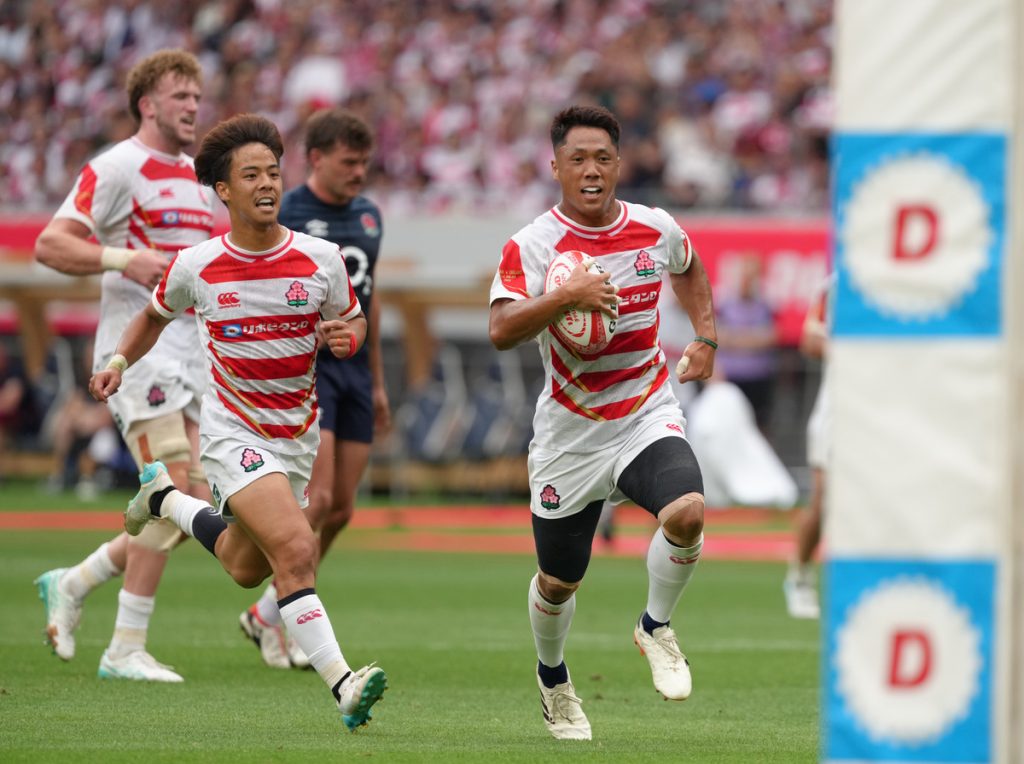
What the Young Team Lacks
After the 2023 Rugby World Cup, Japan's national team saw major changes as head coach Jamie Joseph's eight-season tenure ended. Experienced players like hooker Shota Horie (Saitama Wild Knights) have also retired. Among the 35 players Jones gathered for the national camp, 12 are uncapped youngsters.
England, against whom Japan has lost all 11 previous matches, continued under its previous World Cup coach. It arrived in Japan after intense Six Nations Championship games in February and March.
Jones believes that to compete for a World Cup title, starters need a combined total of 600 to 800 caps. However, in the June 22 match, Japan's starting lineup, ranked 12th in World Rugby, had only 169 caps compared to fifth-ranked England's 522.
Facing an opponent with much more experience and achievements provided a practical measure of the Brave Blossoms' own capabilities.
The Japan team's achievement in this match was its ability to withstand England's strong scrum and maintain a 100% success rate in its lineouts. Mamoru Harada (Toshiba Brave Lupus Tokyo) debuted as a starter for the national team.
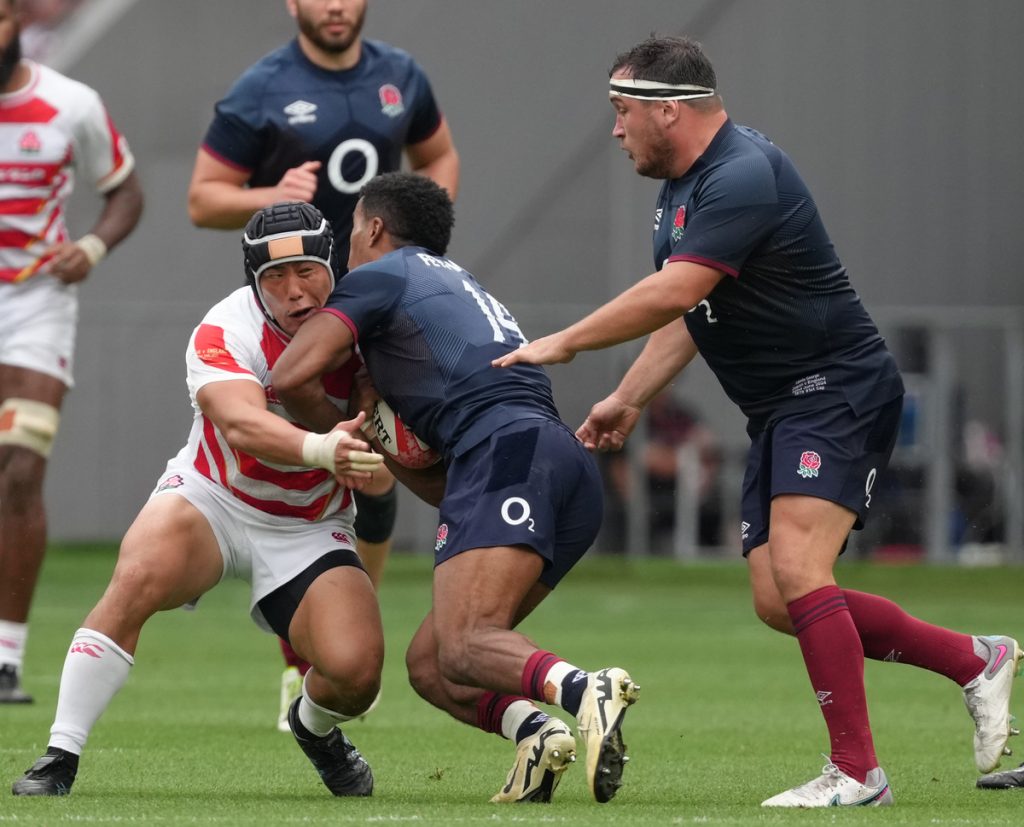
Harada credited its strong performance in set-piece plays, crucial for launching attacks, to the coaching from Owen Franks and Victor Matfield in training camp.
Reflecting on the team's lineout success, he emphasized, "The coaching from Owen and Victor during the camp made it possible, despite the short time."
Jones brought in rugby legends Franks, who retired recently with 108 caps for the New Zealand national team, and Matfield, who earned 127 caps for the South African national team, to the coaching team. Their detailed guidance, leveraging their experience and individual player positions, showed its effect in the first match.
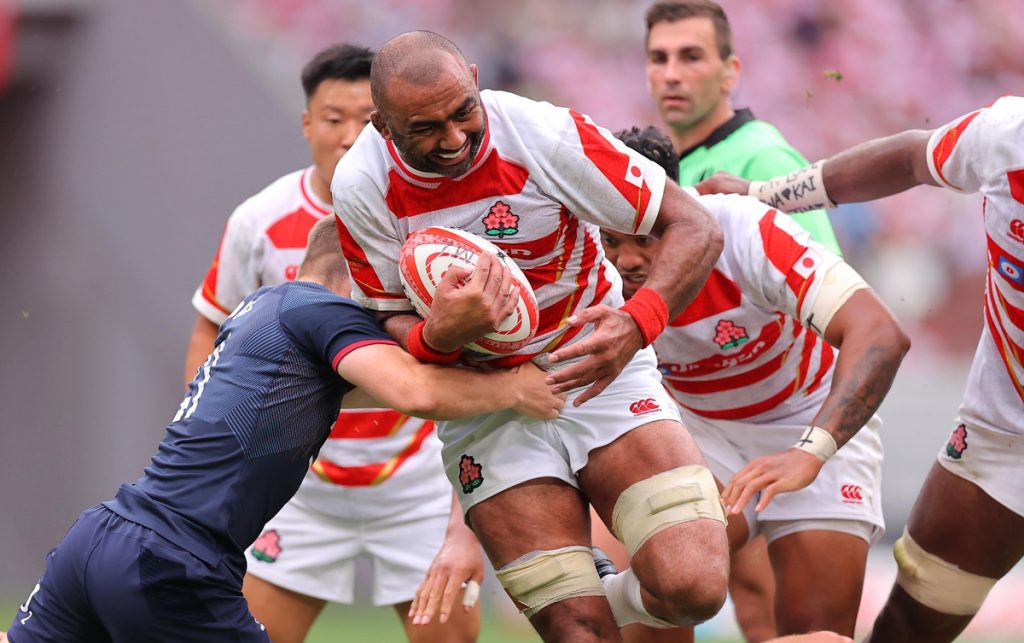
Speed and Versatile Link-Up Play
While each aspect showed promise, this defeat to England underscored areas needing improvement. Coach Jones noted converting just one early penalty goal, saying, "We aimed to increase attack pace and diversity. Today, England's strong defense forced more direct plays."
Japan's forwards often advanced the ball vertically, hindering their ability to assert dominance and execute the constant, high-speed, versatile link-up play required to challenge top teams effectively.
Every national team strives for victory as a priority. Flanker Michael Leitch, returning as captain at 35 years old, recognizes this imperative. However, he also looks forward, saying, "The England game will surely become an asset for us. Young players are emerging, and we had strong moments. We aim to prepare thoroughly for the future."
The lesson from this defeat underscores the need for investment in the current national squad.
What returns can this investment yield in 2027?
We shall see as Eddie Jones' second journey with Japan continues.
RELATED:
Author: Hiroshi Yoshida


















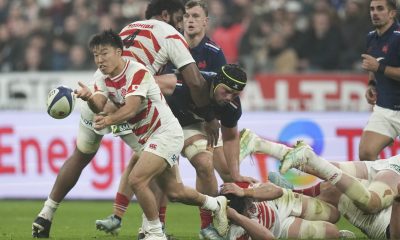

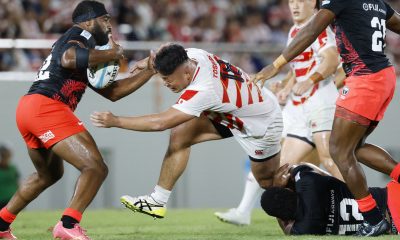

You must be logged in to post a comment Login